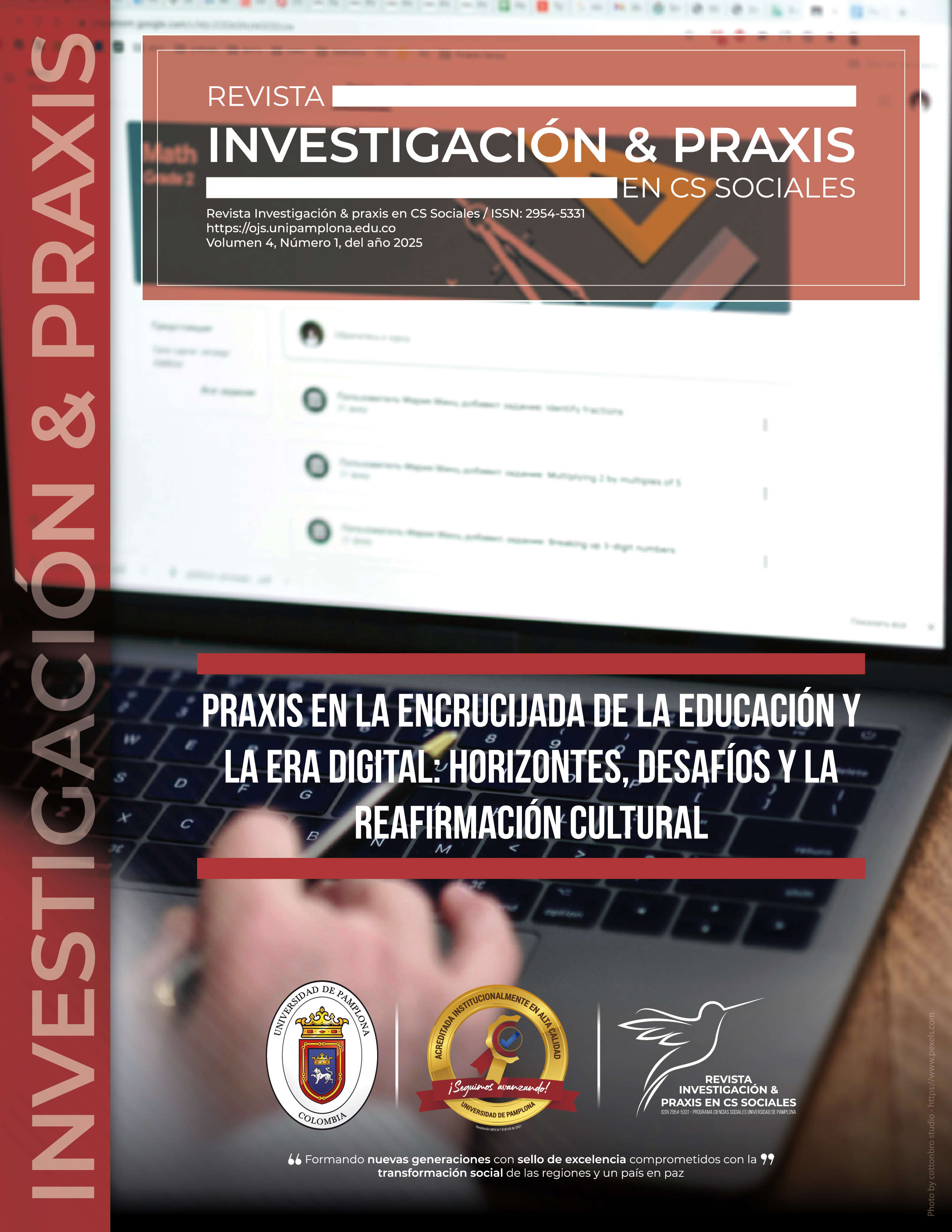The Impact of Artificial Intelligence on Secondary and Higher Education in Latin America
DOI:
https://doi.org/10.24054/ripcs.v4i1.4009Keywords:
Artificial Intelligence, Secondary Education, Higher Education, Latin America, Bibliographic Study, Technological Impact, Educational InnovationAbstract
The rapid incursion of Artificial Intelligence (AI) into various social sectors raised significant questions for the educational field, which motivated the present research. This qualitative bibliographic study aimed to analyze the impact AI had on secondary and higher education within the Latin American context. To this end, the objectives behind AI implementation in these spheres, the basic procedures through which it was applied in teaching-learning processes and educational management, as well as the most relevant results reported in specialized literature, were examined. Similarly, the main conclusions and challenges that emerged from these experiences were identified. The methodology involved a systematic and exhaustive review of over 70 academic sources and specialized documents, preferably published in recent years, which addressed the applications, benefits, limitations, and ethical considerations of AI at the mentioned educational levels in the region. As a result, key emerging trends were identified, persistent knowledge gaps were highlighted, and future research lines were proposed to deepen the understanding of this constantly evolving phenomenon.
References
Aguerre, C. (2019). Gobernanza de la inteligencia artificial en América Latina: Desafíos y oportunidades. CEPAL.
Baker, T., & Smith, L. (2019). Educating for the age of artificial intelligence: Curricula, pedagogies, and ethics. Routledge.
Biesta, G. (2015). What is education for? On good education, teacher judgement, and educational professionalism. Policy Press.
Chowdhury, G. G. (2003). Natural language processing. Annual Review of Information Science and Technology, 37(1), 51-89.
Cobo, C. (2019). Acepto las condiciones: Usos y abusos de las tecnologías digitales. Fundación Santillana.
Dussel, I. (2021). La digitalización de la educación en América Latina en pandemia: Entre la ilusión y la intemperie. Revista de Educación a Distancia (RED), 21(65). https://doi.org/10.6018/red.450981
Fernández-Ríos, J., & Ramírez-Hernández, D. (2022). Adopción de inteligencia artificial en universidades latinoamericanas: Un análisis desde la Teoría de la Actividad. Revista Iberoamericana de Educación Superior, 13(36), 45-62.
García-Peñalvo, F. J. (Ed.). (2021). AI in education: Challenges and opportunities for the Latin American region. Springer.
Goodfellow, I., Bengio, Y., & Courville, A. (2016). Deep learning. MIT Press.
Gudmundsdottir, G. B., & Hatlevik, O. E. (2018). Newly qualified teachers’ professional digital competence: Implications for teacher education. European Journal of Teacher Education, 41(2), 214-231. https://doi.org/10.1080/02619768.2017.1416085
Ifenthaler, D., & Schumacher, C. (2016). Student perceptions of privacy principles for learning analytics. Educational Technology Research and Development, 64(4), 923-938.
Kaplan, A., & Haenlein, M. (2019). Siri, Siri, in my hand: Who’s the fairest in the land? On the interpretations, illustrations, and implications of artificial intelligence. Business Horizons, 62(1), 15-25.
López-Meneses, E., Sirignano-Acosta, F. M., Llorent-Vaquero, M., & Vázquez-García, A. W. (2020). La inteligencia artificial en la educación superior: Desafíos y oportunidades. RIED. Revista Iberoamericana de Educación a Distancia, 23(2), 9-18.
Lugo, M. T., & Ithurburu, V. (2019). Políticas digitales en América Latina. Tecnologías para fortalecer la educación de calidad. Revista Iberoamericana de Educación, 79(1), 11-32.
Montes, N., & Suárez, C. (2021). Plataformas de aprendizaje adaptativo en la educación superior de Colombia: Un estudio de caso. Pixel-Bit. Revista de Medios y Educación, 60, 89-107.
Noble, S. U. (2018). Algorithms of oppression: How search engines reinforce racism. New York University Press.
Ouyang, F., & Jiao, P. (2021). Artificial intelligence in education: The state-of-the-art. Computers & Education: Artificial Intelligence, 2, 100005. https://doi.org/10.1016/j.caeai.2021.100005
Pérez-Morales, A., & Rodríguez-Grau, J. (2021). Impacto de un sistema tutor inteligente en la motivación de estudiantes de secundaria en Perú. Educación XX1, 24(1), 223-245.
Popenici, S. A., & Kerr, S. (2017). Exploring the impact of artificial intelligence on teaching and learning in higher education. Research and Practice in Technology Enhanced Learning, 12(1), 22.
Ramírez-Ochoa, M. I., & García-Valcárcel, A. (2022). Evaluación automatizada de ensayos mediante IA: Percepciones docentes en universidades mexicanas. Formación Universitaria, 15(3), 125-136.
Selwyn, N. (2019). Should robots replace teachers? AI and the future of education. Polity Press.
Siemens, G., & Gasevic, D. (2012). Guest editorial-Learning and knowledge analytics. Educational Technology & Society, 15(3), 1-2.
Silva, J., & Castellanos, A. (2020). Personalización del aprendizaje con IA: Experiencias en bachilleratos de Chile. Revista de Pedagogía Crítica, 18(25), 78-95.
SITEAL. (2021). La educación en América Latina frente a la pandemia de COVID-19. IIPE UNESCO.
UNESCO. (2020). Educación para todos en América Latina y el Caribe: Balance y perspectivas. UNESCO.
UNESCO. (2021). AI and education: Guidance for policy-makers. UNESCO.
Vaillant, D. (2019). Formación docente en la era digital: Desafíos y tensiones. Cuadernos de Investigación Educativa, 10(1), 13-24.
Valdez, M., Acosta, R., & Paredes, F. (2020). Sistemas tutores inteligentes para la enseñanza de la física en la educación media brasileña. Revista Brasileira de Informática na Educação, 28, 345-367.
VanLehn, K. (2011). The relative effectiveness of human tutoring, intelligent tutoring systems, and other tutoring systems. Educational Psychologist, 46(4), 197-221.
Zawacki-Richter, O., Marín, V. I., Bond, M., & Gouverneur, F. (2019). Systematic review of research on artificial intelligence applications in higher education – Where are the educators? International Journal of Educational Technology in Higher Education, 16(1), 39. https://doi.org/10.1186/s41239-019-0171-0
Published
How to Cite
Issue
Section
License
Copyright (c) 2025 Francisco Javier Nuñez Romero

This work is licensed under a Creative Commons Attribution 4.0 International License.










